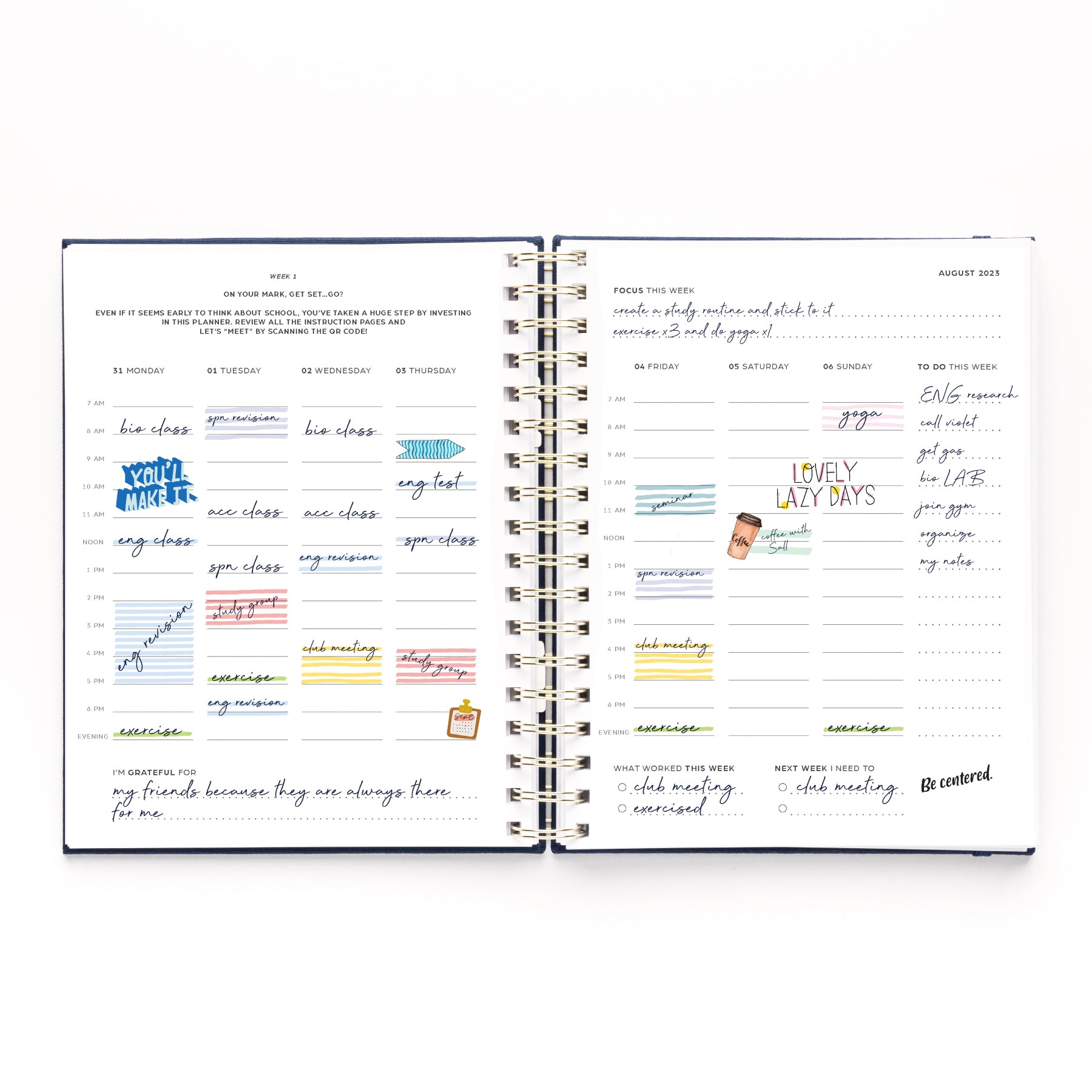
Hey Student, Here's How To Use Your Planner!
Most people are visual learners so "seeing" what they need to do, written in a planner, helps them remember. Writing tasks and appointments down by hand also activates the brain and increases recall.
By using a paper planner, a student can "tattoo" what they need to do on their brain and that will guide their behavior.

When you get your planner, the first thing you can do is write in anything you already know is important: birthdays, vacations and other important events.

When you have your actual school schedule ─ what classes and when, you can then block out those times for the entire semester. The only caveat to this is if you think you might end up dropping or adding a class, USE A PENCIL just in case.
Once your classes are blocked out, you scan the week and look for chunks of time for doing your schoolwork. You may have a two hour break between classes and then you block out those times for studying.
DRAW an actual box and WRITE down "study time." As the semester progresses, you can make that block of time even more specific by listing exact assignments, for example "research for history paper."

What you are going to do is essentially create a "routine" for each week, one that you can repeat regularly so that it becomes a habit. Once you train yourself to go to the library after lunch to do some work for 90 minutes, three days a week, that becomes part of your schedule. Within three weeks, it will be a habit that you don't think about - you just do it. But writing it down and committing to it in your planner is the first and most critical step.
Once school starts, you will be given syllabi for each class that will list due dates and assignments. WRITE THOSE DOWN on the due date and then go back two or three days and write a reminder. So if an exam is Thursday, October 15, use a sticker or write down EXAM at the time you are taking it, then go back a few days to Monday, October 12 and write "STUDY FOR EXAM." Then find the "chunks" of time for Monday, Tuesday & Wednesday that you can study for the exam.
Your whole week then becomes focused around what is most important - the exam - and you can avoid "cramming" and the stress of staying up all night trying to remember a great deal of information.